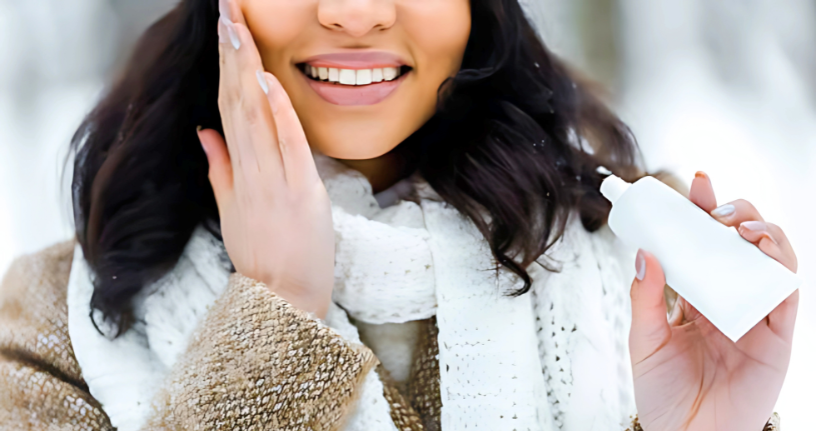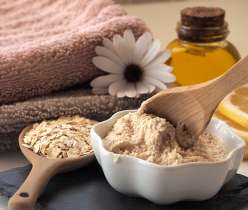There is no second thought that acne skincare is different from normal skincare. Adapting your acne skincare routine for the winter months is essential to maintain clear skin while addressing the challenges that cold, dry weather can bring. Winter conditions can affect the skin in different ways: dry air, indoor heating, and lower humidity levels can strip the skin of moisture, making it more prone to irritation and dryness, even for those with oily or acne-prone skin.
This page will discuss some practical tips for adjusting your acne skincare routine in the winter months.
- Switch to a hydrating cleanser
In the winter, it’s important to avoid cleansers that are too harsh or drying, as they can strip your skin of its natural oils and make it more prone to irritation. Look for a gentle, hydrating cleanser that removes impurities without disrupting your skin’s moisture barrier. Cream-based or gel-based cleansers with hydrating ingredients like glycerin, ceramides, or hyaluronic acid are great options.
Recommended ingredients include glycerin, ceramides, hyaluronic acid, aloe vera, etc.
- Moisturize more often
Moisturizing is key during winter to prevent dryness and maintain a healthy skin barrier. Don’t skip this step even if you have oily or acne-prone skin. Opt for a lightweight, non-comedogenic (won’t clog pores) moisturizer that provides hydration without making your skin greasy.
You can choose oil-free moisturizers, gel-based formulations for oily/acne-prone skin, and moisturizers with ingredients like niacinamide, ceramides, or squalane.
- Incorporate humidifiers
Indoor heating during winter can cause the air to become very dry, which can strip your skin of moisture and exacerbate acne. Using a humidifier in your home or bedroom can help keep the air moist and prevent your skin from becoming too dry.
- Adjust acne treatments
Certain acne treatments, such as benzoyl peroxide, salicylic acid, or retinoids, can be drying or irritating on their own, and they may exacerbate dryness in the winter. Consider using these products less frequently or switching to a gentler formulation during the colder months.
-
- Benzoyl peroxide – Can create dry skin; consider using it every other day or switching to a lower concentration.
- Salicylic acid – A gentle exfoliant; use it sparingly when your skin feels dry.
- Retinoids – These can be more irritating in winter. Use them less often or at lower strengths and always apply a thick moisturizer afterward.
If you find that acne treatments are too harsh in winter, you might want to alternate them with hydrating serums or oils that help replenish moisture. Acne skin care is important to avoid acne scars.
- Use a nourishing serum or oil
Serums or oils can provide additional hydration and nourishment to your skin. Consider using a lightweight, non-comedogenic oil or serum with ingredients like hyaluronic acid, niacinamide, or squalane to keep your skin hydrated without causing breakouts. You can consider niacinamide (for soothing and reducing inflammation), squalane (for moisture retention), and hyaluronic acid (for deep hydration).
- Don’t skip sunscreen
Though the sun may seem less intense in winter, UV rays can still cause damage to your skin, especially in snowy environments where the sun’s rays reflect off the snow. Continue to apply a broad-spectrum sunscreen with SPF 30 or higher every morning. Look for a hydrating and gentle sunscreen on acne-prone skin, preferably oil-free and non-comedogenic. Look for sunscreens with zinc oxide or titanium dioxide (physical sunscreens), hydrating ingredients like hyaluronic acid, or broad-spectrum protection (UVA and UVB). You should consult a dermatologist to learn the best sunscreen and cream for acne prone skin if you have severe acne conditions.
- Exfoliate gently
Exfoliation can help remove dead skin cells that might otherwise clog pores, but harsh exfoliants can be irritating in the winter. You should opt for mild exfoliating products, such as gentle AHA (alpha hydroxy acid) or BHA (beta hydroxy acid) exfoliants. If you are using chemical exfoliants, reduce the frequency to prevent over-drying.
- Adjust your diet and hydration
Your skin’s appearance can be influenced by what you eat, so staying hydrated and focusing on a balanced diet rich in vitamins and antioxidants is important. Omega-3 fatty acids, zinc, and vitamins A and E promote healthy skin. Drink plenty of water to maintain hydration, include foods rich in healthy fats, such as fish, nuts, and seeds, and consider incorporating antioxidant-rich foods like berries, leafy greens, and citrus fruits.
- Pay attention to acne triggers
Winter is a time when many people experience more stress, which can trigger breakouts. Be mindful of other factors that could contribute to acne flare-ups, such as changes in your diet, skincare routine, or even the fabrics of scarves and coats that may irritate your skin.
- Avoid hot showers
Although it may be tempting to take hot showers in cold weather, hot water can actually dry out your skin and worsen acne. Stick to lukewarm water when washing your face or body to avoid stripping your skin of essential moisture.
Simple winter acne skincare routine
Morning:
-
- Gentle hydrating cleanser
- Niacinamide or hydrating serum
- Oil-free moisturizer
- Sunscreen (SPF 30 or higher)
Evening:
-
- Gentle hydrating cleanser
- Acne treatment (benzoyl peroxide, salicylic acid, or retinoid – alternate days)
- Moisturizer or nourishing serum
Conclusion
Winter acne care is all about balancing treatment with hydration. While it’s important to continue managing acne with your usual treatments, you may be required to modify your routine to protect your skin from winter dryness. Focus on gentle, hydrating products, reduce the frequency of harsh acne treatments, and don’t skip on moisture. By adapting your skincare routine to the colder months, you can keep your skin clear and healthy all year long. Some effective products that are commonly prescribed to treat acne skin conditions include persol gel 2.5% (30 gm), persol gel 5%, retino A micro gel 0.04% (15 gm), Aziderm cream 20% (15gm), Supatret .04% gel 20gm. Consult a dermatologist for the best acne cream and dosages to treat your acne.




